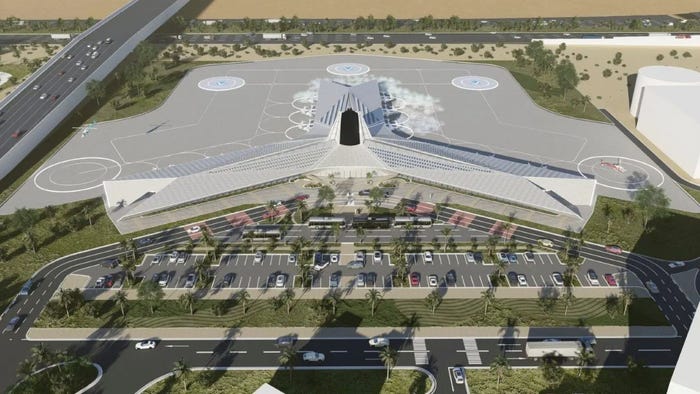Autonomous Space-Capsule Company Gets $71M Space Force ContractAutonomous Space-Capsule Company Gets $71M Space Force Contract
Inversion Space Company is developing reusable capsule to keep cargo in orbit for immediate worldwide delivery

The U.S. Space Force recently awarded aerospace startup Inversion Space Company a $71 million contract to develop an autonomous re-entry vehicle capable of delivering cargo anywhere on Earth.
Inversion was one of nine development-stage companies selected by Space Force’s innovation arm, SpaceWERX, for Strategic Funding Increase (STRATFI) awards in the second round of disbursements this year.
Inversion, which was founded just three years ago, is aiming to develop a “warehouse in space,” a collection of payload-carrying, Earth-orbiting space capsules that can be called down to precise locations on demand, effectively delivering cargo anywhere in the world in a matter of minutes.
The company aims to make space the “fourth transportation domain” after land, sea and air and notes that space is the only domain not to require the crossing of sovereign borders, “giving unheard of advantages to those who embrace it.” The company expects its initial client to be the U.S. military, with commercial users to follow.
“Autonomous re-entry vehicles that can be called to Earth on demand will transform logistics and provide rapid access to even the most remote parts of the globe,” said Justin Fiaschetti, CEO of Inversion. “This contract will allow us to develop and demonstrate the technologies that make it possible to deliver cargo anywhere on Earth in minutes, from remote islands, to uninhabitable mountains, to the middle of the ocean.”
Inversion is set to launch Ray, a technology demonstrator capsule, on SpaceX’s Transporter-12 Rideshare mission in October. The 20-inch capsule will orbit the Earth for four weeks while the Inversion team conducts tests. The vehicle will then be summoned back to Earth and will conduct a deorbit burn using Inversion’s 8 pound-force-thrust, bipropellant rocket engine, CE-1. Ray will re-enter the atmosphere at hypersonic speeds of 17,800 mph before deploying its parachute to slow to 12.5 feet per second and splash down off the coast of California.
Ray is a stepping stone to Inversion’s primary project, Arc (autonomous re-entry capsule), a reusable capsule capable of carrying cargo and precisely landing within an area of less than 50 square feet. The first launch of Arc is currently scheduled for 2026.
The other recipients of this round of STRATFI awards and the technologies they are developing are:
American Lithium Energy, advanced nano silicon-carbon prismatic cell
Apex Technology, satellites for low-Earth orbit and geostationary, equatorial orbit dynamic space operations
Impulse Space Inc., tactically responsive, high-energy kick stage for orbit maneuvers
K2 Space, mega-class satellite bus
Outpost Technologies, joint precision orbital carryall
Portal Space Systems, scaled Supernova spacecraft
Turion Space, multi-payload Space Development Agency satellites and real-time command and control
Wildstar LLC, next-generation narrowband antennas
About the Author
You May Also Like






